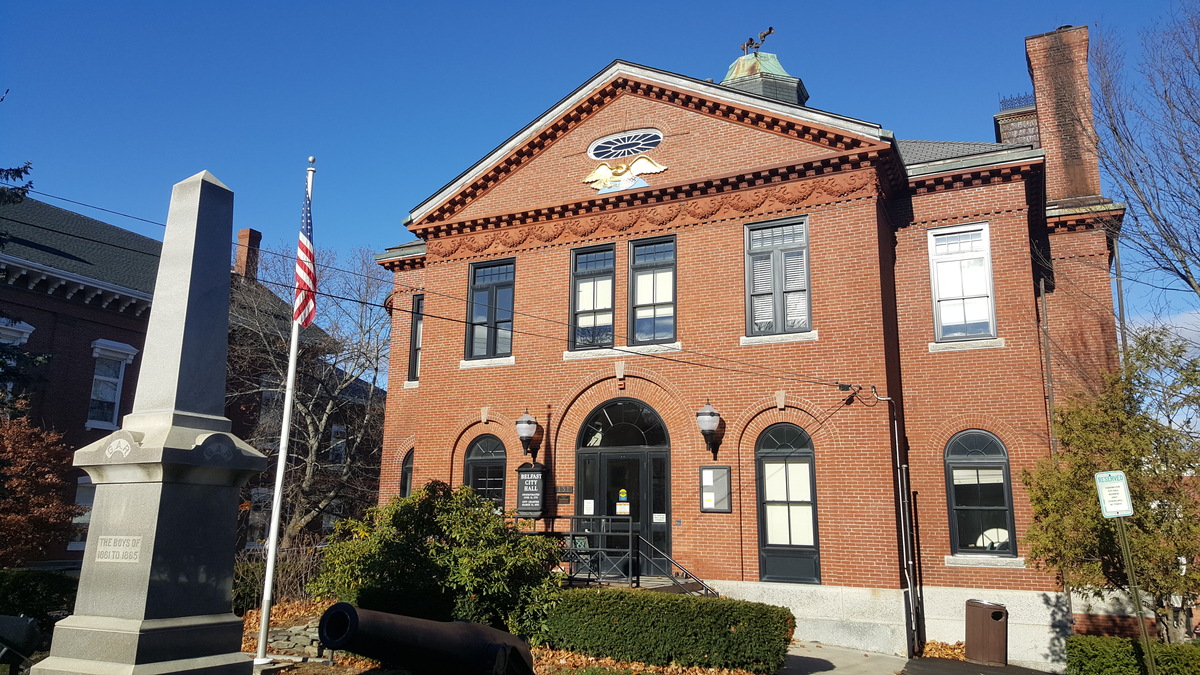Copyright Bangor Daily News

As voters in Belfast prepare for the Nov. 4 municipal election, the city’s mayoral race has taken on a distinctly neighborly tone. In a contest that pairs longtime incumbent Mayor Eric Sanders with first-time candidate Adam Blodgett, residents are being asked to decide between continuity and a fresh set of eyes on City Hall. For Sanders, who has guided Belfast since 2019, the race represents a chance to continue his brand of calm, steady leadership that has defined his six years in office. For Blodgett, a relative newcomer to the city, it’s an opportunity to offer a new perspective on housing affordability, property taxes, community engagement and other issues. Though the campaign has remained cordial, it presents voters with a clear contrast in experience and approach. Adam Blodgett Blodgett and his wife, Marsha, moved to Belfast in February 2023 from North Carolina, drawn by the city’s walkable downtown, small-town feel and welcoming spirit. Originally from Winslow, and a graduate of Thomas College in Waterville, Blodgett works remotely as a call center manager for a pet insurance company — a job that, he says, gives him both flexibility and stability. On the side, he runs a dog-walking business that has quickly become a fixture in his neighborhood. “My wife really wanted to move to Belfast,” Blodgett said in an interview on Belfast Community Television. “She has so many fond memories of coming here as a teenager. I wanted a community that was walkable and had that strong sense of belonging.” Though new to politics, Blodgett’s candidacy has drawn attention from residents eager for a voice outside the established political circle. He describes himself as a listener first, noting that his career in customer service has honed his ability to understand and respond to community concerns. “The key to customer service,” he said, “is being an active listener.” His platform is rooted in accessibility, transparency, and fiscal balance. One of the issues he hears most often, he says, is the growing strain of property taxes. “Everyone has talked to me about property taxes,” Blodgett explained. “It’s a challenging conversation. I understand the need for paved roads, beautiful sidewalks and schools — but emotionally, I get a little sticker shock when I receive that bill.” He worries about the impact on working families, who struggle to afford child care, and seniors, who live on fixed incomes. While acknowledging that some of the cost pressures stem from state and federal policies, Blodgett wants to better understand local spending priorities — particularly in the school system. “Our school budget is a big chunk of our taxes,” he said. “I’d just like to see where that money is going.” Blodgett has been watching City Council meetings via BEL-TV broadcasts to understand the workings of local government. “I really appreciate that we can watch them virtually,” he said. “It’s a great way for residents to stay informed.” His run, he insists, isn’t about disapproval of Sanders. “I’ve met Eric a few times, and he’s always pleasant. I just want to get involved, and I understand he’s run unopposed in the past.” For Blodgett, Belfast’s greatest strength lies in its people. “Our community is our greatest strength, and we need to come together,” he said. He praises the city’s recent affordable housing development on Congress Street and hopes to encourage more projects like it. “That’s exactly what we need more of,” he said. Eric Sanders Sanders’ political roots in Belfast run deep. A fixture in local government for nearly two decades, Sanders served five years on the school board and 10 on the City Council before being elected mayor in 2019. His approach to leadership — calm, collaborative and, notably, modest — has earned him quiet respect from colleagues and residents alike. When Sanders first ran for mayor, he pledged to “keep the drama on the stage and out of council chambers,” a reflection of both his involvement in community theater and his desire for civility in local politics. With the mayor’s role largely ceremonial, Sanders has emphasized his function as a facilitator, keeping discussions orderly, encouraging compromise and ensuring that the city manager and council can do their work without unnecessary friction. His tenure has seen Belfast weather both storm and calm times. During the COVID-19 pandemic, Sanders became a steady presence through weekly video updates on the city’s Facebook page, helping reassure residents during a time of fear and confusion. His tone was factual and reassuring, encouraging cooperation rather than division. Beyond crisis management, Sanders has championed education and workforce training. In 2023, he testified before state lawmakers in support of the University of Maine’s Hutchinson Center in Belfast, calling it vital to the region’s economic future and a key part of the city’s lifelong learning ecosystem. Throughout his three terms, Sanders has avoided grandstanding, focusing instead on steady progress, maintaining Belfast’s infrastructure, addressing housing needs and preserving the community’s character. “People have expectations of the mayor that they don’t have of council,” he once said. “Which is weird, because the mayor doesn’t have a vote.” That humility has become part of his identity as mayor. The Choice Now seeking a fourth term, Sanders faces a rare challenger in Blodgett. The contrast between the two couldn’t be more striking: One is a well-known steward of local institutions, the other a new voice eager to learn them. Yet both share an evident affection for Belfast and its people. For Belfast voters, the 2025 mayoral race is less about partisanship than temperament. Sanders offers continuity and reassurance, a steady hand on the helm of a city navigating growth and change. Blodgett, by contrast, offers curiosity and energy, representing a generation of newer residents eager to take part in shaping Belfast’s future. Blodgett’s campaign has emphasized inclusion and transparency; Sanders’, consistency and cooperation. Both candidates speak warmly of the other, and both insist their shared goal is a thriving Belfast that balances its charm with opportunity. Whether voters choose the calm veteran or the fresh-faced newcomer, the tone of this year’s mayoral race has remained quintessentially Belfast — civil, community-minded and focused on the city’s collective good. As Blodgett himself put it: “I want to help lead Belfast and help prop us up into the future. I want to keep Belfast a growing and vibrant community.” And in Sanders’ words, that future may depend not on conflict, but collaboration. If Belfast’s voters hold to that spirit, the city will remain, as its motto suggests, just the right kind of weird.



